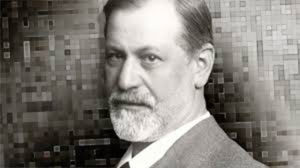« Le Temps est un enfant qui joue au trictrac »
Résumé
La théorie psychanalytique, à l'instar de son fondateur, s'exprime surtout en termes d'espace (topiques), cependant la clinique de la vie quotidienne et de la pratique analytique suggère que l'internalisation de la temporalité joue un rôle considérable dans l'élaboration de la pensée et en particulier dans le traitement de la souffrance suscitée par l'objet perdu. La cure, elle-même, a pour but de créer un temps intériorisé, véritable temps d'objet qui permet au sujet de se constituer une histoire ; ainsi, pourra-t-il faire face au vide (pré-temporel), sans pour autant éviter le néant (post-temporel).
Samenvatting
De psycho-analytische theorie spreekt vooral in (plaatsbepalende) ruimtelijke termen, daarbij het voetspoor van haar ontwerper volgend. De klinische beschrijving van het dagelijkse leven en de analytische praktijk laten echter vermoeden dat de verinwendiging van de tijdsbeveling een belangrijke rol speelt in geval van objectverlies ; zowel in de verwerking van de gedachte er aan als in de behandeling van het lijden dat er door opgewekt wordt.
De behandeling zelf heeft als doel een verinwendigde tijd te scheppen, werkelijke «objecttijd» die aan het subject toelaat zich een eigen geschiedenis te ontwerpen.
Aldus kan het subject de leegte (het pre-temporale) onder ogen zien, zonder daarom het niets (het post-temporale) te vermijden.
Summary
Psychoanalytic theory, in the manner of its founder, expresses itself above all in terms of space (topographically) although the clinical experience of everyday life and analytic practice suggests that the internalisation of a sense of time plays a considerable role in the elaboration of thought and in particular in treatment of suffering caused by object-loss. Psychoanalytic treatment itself has as its goal the creation of an inner time, a veritable object-time which allows the subject to establish a history for himself : in this way he will be able to cope with the void (pre-temporal), without to any extent avoiding nothingness (post-temporal).





